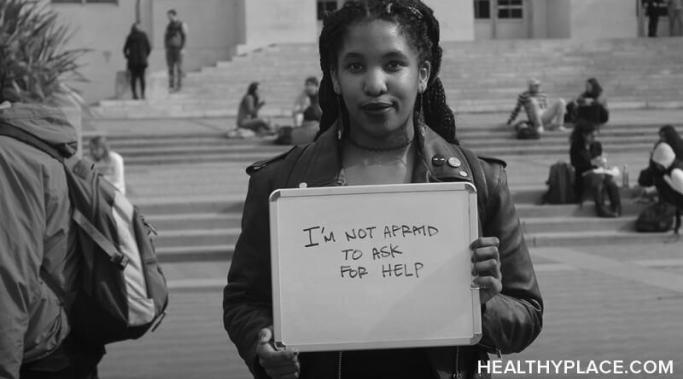Blogs
After a major psychotic break, returning to work can be a daunting prospect. For me, learning to manage paranoia effectively enough to interact well with others and complete tasks efficiently took a significant length of time. Following my hospitalization in late 2017, I planned to return to work as a physician assistant within a few months. Then I planned to change specialties and return within a year. I didn’t have a plan at all when I realized that my return to practicing medicine needed to be put on hold indefinitely due to my symptoms of schizophrenia. That’s when my wife advised we think outside the box.
Loving yourself through an eating disorder relapse is important because, if you have experience with an eating disorder, then you know firsthand that the recovery process is not a linear route. Instead, it's full of detours and obstacles, forward motions and backward stumbles. Sometimes there are victories, but other times, a relapse can occur—and when it almost inevitably does, the question then becomes: How do you love yourself through that eating disorder relapse?
What is catastrophizing in depression? According to the APA Dictionary of Psychology1, to catastrophize is "to exaggerate the negative consequences of events or decisions." I define it as freaking out over little-to-medium crises or unexpected occurrences in my life. It's like thinking the whole evening is ruined if I forget to thaw the chicken for dinner of feeling like I'm a mess all day if the outfit I'd planned to wear isn't clean. Catastrophizing could be set in motion by getting an unexpected bill in the mail. It could begin upon receiving a text from a friend canceling plans. Perhaps a catastrophization trigger for you would be the difficult decision of choosing between two great job offers. Any one of these events can set off a chain reaction that results in catastrophizing that worsens depression.
I frequently find myself in situations where environmental stressors affect my mental health, so I try to plan ahead by bringing along a mental health travel kit. While these situations may not be related to actual travel, any unfamiliar environment can come with extra stressors.
As I’ve confided before, one of the most debilitating symptoms of my schizoaffective disorder is that I hear voices. I’ve been hearing them a lot more often lately. I’ve been hearing them so often that I called my psychopharmacologist to raise the dosage of my antipsychotic medication. That helped a little bit, but I’m still hearing them more often than I’d like to. Here’s how I’m dealing with these schizoaffective voices.
Do you equate an eating disorder with anorexia? Would you be surprised to learn that there are many different types and sub-types of the disease? And that most people with an eating disorder in the U.K. defy the prototype of the "emaciated teenager who refuses to eat"?
Unfortunately, stigma is real, and it's dangerous. It is visible in public, and it comes full circle affecting patients and professionals alike. Stigma keeps mental illness in the dark and misunderstood, and often prevents sufferers from seeking the help they need.
For many of you, hearing me recommend being alone while anxious may seem foreign, if not counterproductive. After all, a common suggestion for people with any mental illness is to maintain a healthy support network to get you through tough times. I’m not disagreeing with that suggestion, for I think it’s vitally important for your health. What I am suggesting is that during those periods of heightened anxiety, it may be helpful to step away from everyone and allow yourself to be alone with your thoughts.
It is very hard to anticipate bipolar moods and, in fact, many times it's impossible. But there are some life events that evoke bipolar moods that are predictable. Sometimes you can read the bipolar weather report. Read on for when you can anticipate bipolar moods and when you likely can't.









